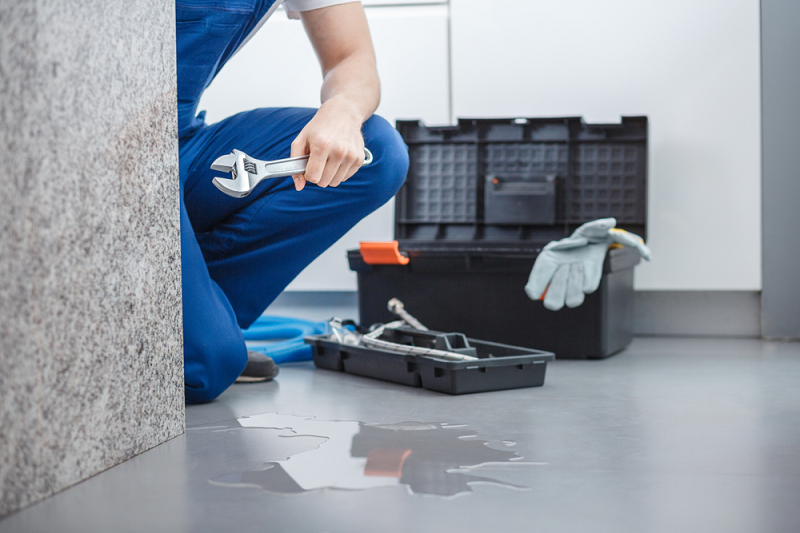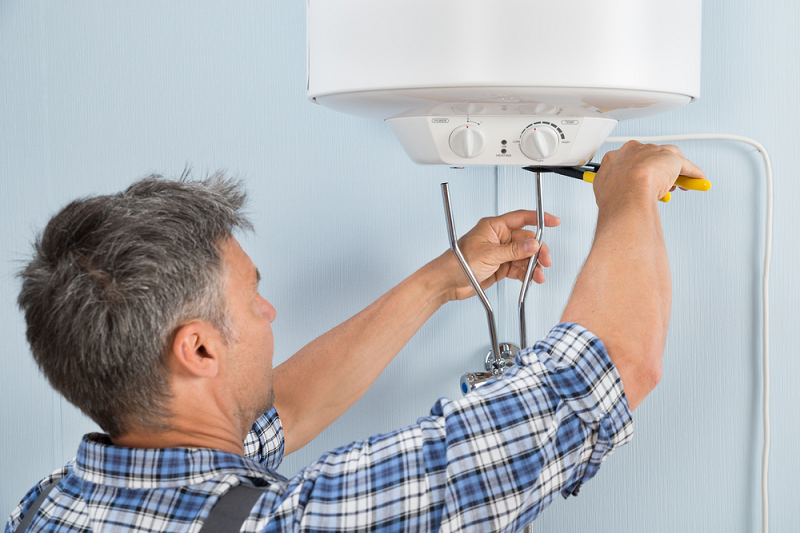A plumbing emergency can strike at any time, leaving you with a mess on your hands and potential water damage to your property. But what exactly constitutes an emergency plumbing situation, and how can you prevent them from happening in the first place? In this article, we'll explore some of the most common emergency plumbing issues, as well as tips for prevention and how to respond when disaster strikes. By the end of this article, you'll be well-equipped to handle any plumbing emergency that comes your way.
Common Emergency Plumbing Issues
 |
| Emergency Plumbing |
A burst pipe is one of the most severe plumbing emergencies you can experience. This can happen due to a variety of reasons, such as freezing temperatures, corrosion, or increased water pressure from a blockage. A burst pipe can cause significant water damage to your property, so it's crucial to address this issue as soon as possible.
Blocked Drains
A blocked drain can quickly escalate to a plumbing emergency, especially if it leads to a sewage backup. Blocked drains can be caused by a buildup of debris, hair, or grease in the pipes, or by foreign objects getting lodged in the drain. Not only can a blocked drain create unpleasant odors and slow-draining water, but it can also lead to water damage and potential health hazards if not addressed promptly.
Leaking Faucets
A leaking faucet may not seem like an emergency, but if left unaddressed, it can lead to water damage, mold growth, and increased water bills. Leaking faucets are typically caused by worn-out washers, seals, or O-rings, and can usually be fixed by replacing these parts.
Sump Pump Failure
If you have a basement, a sump pump is essential for preventing flooding and water damage. However, if your sump pump fails or malfunctions, it can quickly lead to a plumbing emergency. Common causes of sump pump failure include power outages, clogged or frozen discharge lines, and mechanical failure.
Preventing Plumbing Emergencies
Regular Maintenance
One of the best ways to prevent emergency plumbing situations is through regular maintenance. Schedule routine inspections with a professional plumber to check for any potential issues and address them before they become emergencies. Additionally, make a habit of regularly cleaning your drains to prevent clogs and blockages.
Insulation
Proper insulation can help prevent burst pipes during cold weather. Ensure that your pipes are well-insulated, especially in areas exposed to freezing temperatures. Using pipe insulation or heat tape can help protect your pipes from freezing and bursting.
Know Your Plumbing System
Become familiar with your home's plumbing system, including the location of your main water shut-off valve. In the event of an emergency, knowing how to turn off the water supply can prevent further damage and give you time to contact a professional plumber.
Responding To An Emergency Plumbing Situation
Turning Off the Water Supply
In the event of a plumbing emergency, your first step should be to turn off the main water supply. This can help minimize water damage and prevent further issues. Once the water supply is off, you can assess the situation and determine the best course of action.
Assessing the Damage
Before contacting an emergency plumber, assess the damage to your property. This can help you provide accurate information to the plumber and determine whether it's safe to remain in your home during the repair process.
Contacting an Emergency Plumber
Once you've assessed the situation, contact a professional emergency plumbing service. Be sure to provide them with detailed information about the issue, as well as any steps you've taken to address it. This can help ensure that the plumber arrives prepared to handle your specific emergency.
Choosing the Right Emergency Plumbing Service
 |
| Emergency Plumbing |
When faced with a plumbing emergency, it's essential to choose a reliable and experienced plumbing service. Look for a company with a strong reputation, positive customer reviews, and a history of addressing emergency plumbing issues. Additionally, ensure that the service is available 24/7, as plumbing emergencies can happen at any time.
Conclusion
A plumbing emergency can be stressful and overwhelming, but with proper knowledge and preparation, you can prevent and handle unexpected mishaps. By understanding common emergency plumbing issues, taking steps to prevent them, and knowing how to respond when disaster strikes, you can protect your home from water damage and keep your plumbing system in top shape. Remember, when faced with a plumbing emergency, it's crucial to act quickly and contact a professional emergency plumber to address the issue and minimize damage to your property.

.png)


No comments:
Post a Comment